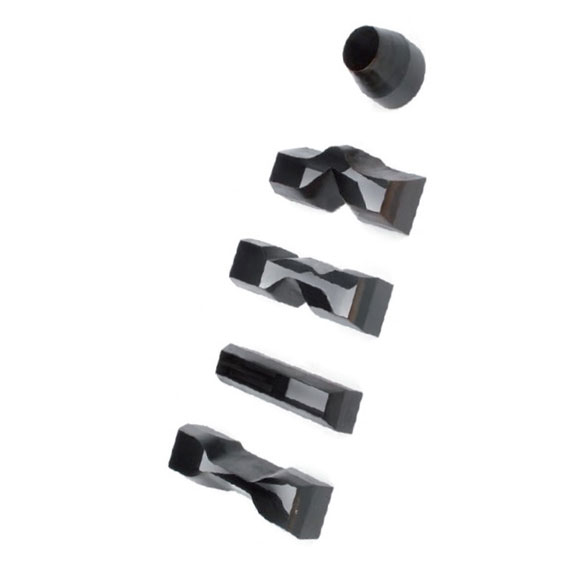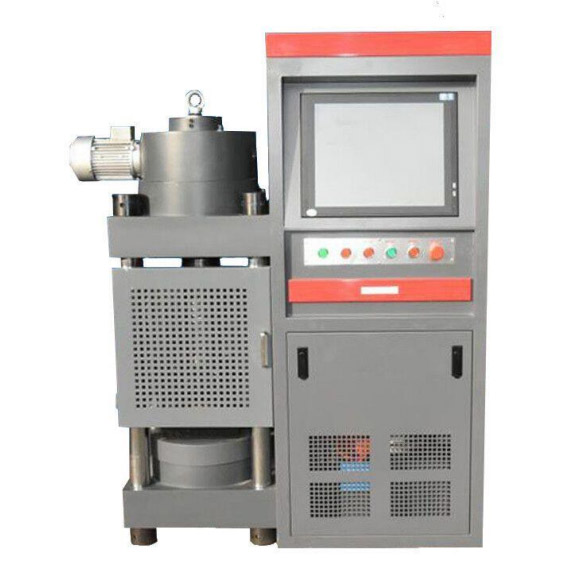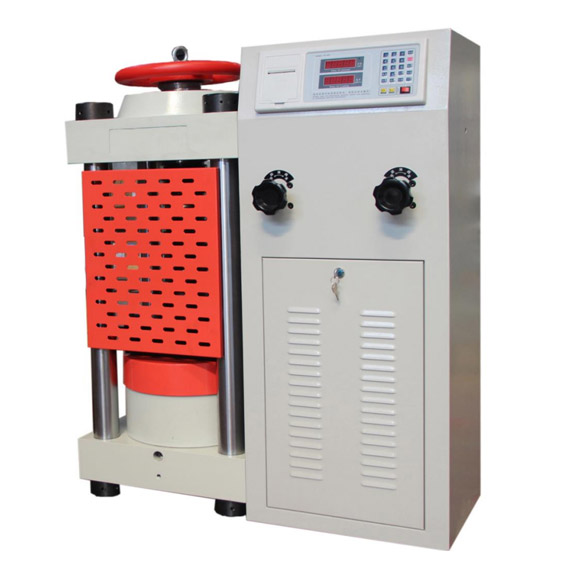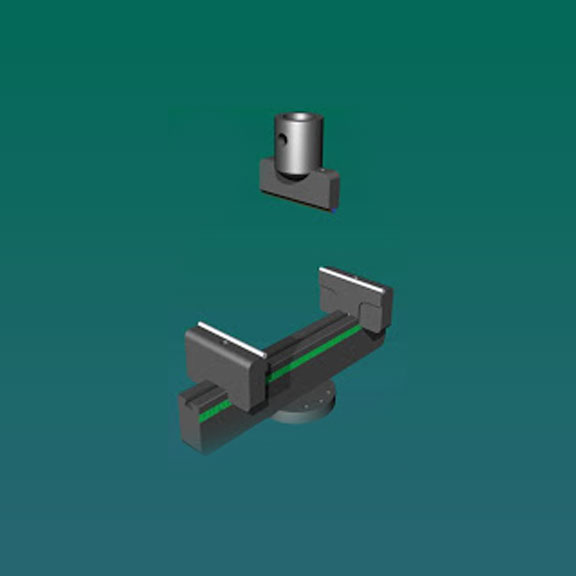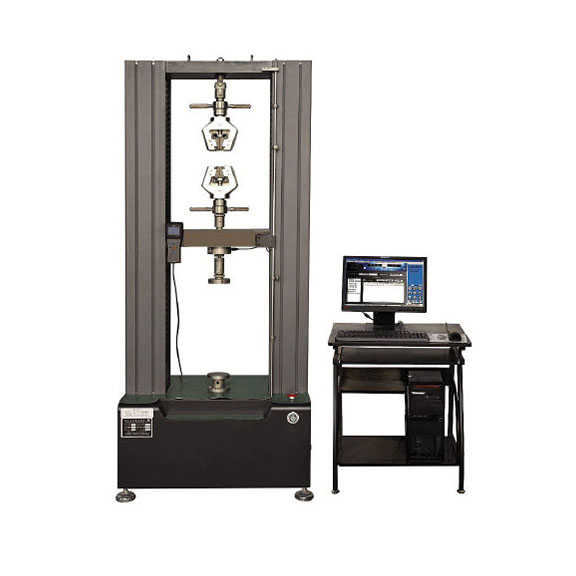What Is a Universal Testing Machine?
A Universal Testing Machine (UTM) is a versatile device designed to perform various mechanical tests on materials. Whether it’s metals, plastics, or composites, a UTM can handle a wide range of materials and test types. It’s often referred to as the workhorse of the material testing world.
The machine’s primary function is to apply controlled tension, compression, or bending forces on a material to evaluate its response. This helps industries select the right materials for construction, manufacturing, and product design, saving both time and resources. One notable feature is the machine’s ability to be paired with strain gauges to monitor the deformation of the material during testing, providing precise measurements.
Tensile Testing: Stretching Materials to Their Limits
Tensile testing is all about pulling a material until it breaks. This test gives insight into a material’s tensile strength, elongation, and ability to withstand pulling forces. When a material undergoes a tensile test, the UTM gradually increases the force applied while simultaneously recording the stress and strain on the sample.
This is one of the most common tests because it simulates real-world forces materials often face. For instance, cables, wires, and structural components are regularly subjected to tensile forces. A Universal Testing Machine manufacturer would typically design UTMs to handle various capacities, allowing them to test both thin wires and thick metal rods.
During this process, engineers can identify key properties such as the ultimate tensile strength, yield point, and fracture point. These data points are crucial for ensuring the safety and reliability of materials used in products like bridges, buildings, and even aeroplanes.
Compression Testing: Pushing Materials to Their Breaking Point
In contrast to tensile testing, compression testing involves pushing a material together rather than pulling it apart. The goal here is to understand how a material reacts when subjected to compressive forces. Think of it as squeezing the material until it buckles or crushes.
This type of testing is essential for materials that need to bear heavy loads, such as concrete in construction or packaging materials. Universal Testing Machines can perform compression tests with ease, applying force steadily until the sample either deforms or fails.
Compression tests often help determine a material’s modulus of elasticity, compressive strength, and failure points. These insights are vital for industries where load-bearing structures are critical. Imagine a skyscraper’s foundation—it needs to withstand enormous compressive forces, so understanding these properties is a must.
Additionally, compression testing aids in ensuring that materials meet industry standards and regulations, which are often non-negotiable when safety is on the line. It’s all about ensuring materials can handle the pressure—literally and figuratively!
Flexural Testing: Bending Without Breaking
While tensile and compression tests focus on pushing or pulling, flexural testing is all about bending. This test determines how well a material can withstand forces that cause it to bend. It’s commonly applied to materials like plastics, wood, and ceramics, which may not be as strong in tension or compression but need to perform well when bent.
Flexural tests are often performed using a three-point or four-point loading system, where a material is placed on two supports and a force is applied in the middle (or at two points). The UTM steadily increases the load, causing the material to bend until it either deforms or snaps.
For example, in the automotive industry, flexural testing is used to assess the strength of bumpers or panels that need to flex without cracking during minor impacts. It’s a bit like giving the material a stretch in all the right places to see if it can bend but not break.
Why Are These Tests Important?
Tensile, compression, and flexural tests serve one primary purpose: to predict how materials will behave in real-world conditions. These tests provide invaluable data, helping industries avoid failures, ensure safety, and optimise material performance.
For manufacturers, understanding a material’s behavior under various types of stress is essential. Without this information, it would be difficult to make informed decisions about material selection, product design, and quality control. The more we test, the more we know—and the fewer risks we take.
Incorporating strain gauges into testing setups allows for even greater precision, as they measure minute deformations in materials. This helps ensure the accuracy of test results and supports the development of more reliable products.
Universal Testing Machines: Versatility at Its Best
A UTM’s ability to handle different types of tests makes it a cornerstone of material testing labs. It’s like having a Swiss Army knife in the testing world—a tool that can do it all. Whether it’s stretching, compressing, or bending a material, a UTM is up to the task.
Additionally, Universal Testing Machines can be customised to meet specific testing needs, providing flexibility in industries that rely heavily on material integrity. While they might not always get the spotlight, these machines are quietly working behind the scenes to keep our buildings standing, our bridges strong, and our products reliable.
Working with a Universal Testing Machine manufacturer means having access to a variety of models suited to specific testing needs, whether you’re testing small, delicate samples or large, industrial components. The ability to tailor testing methods and machine setups gives industries the flexibility to meet their specific demands.
Real-World Applications
From construction to aerospace, Universal Testing Machines play a pivotal role in product development and quality assurance. Imagine testing the wings of an aeroplane—they undergo both tensile and flexural testing to ensure they can handle extreme forces during flight. In the same vein, automotive parts like axles and frames are subjected to compression tests to evaluate how well they withstand impacts.
Everyday items, too, benefit from these tests. That chair you’re sitting on has likely gone through flexural testing to ensure it can support your weight without snapping. It’s these behind-the-scenes tests that allow us to trust the products we use daily.





